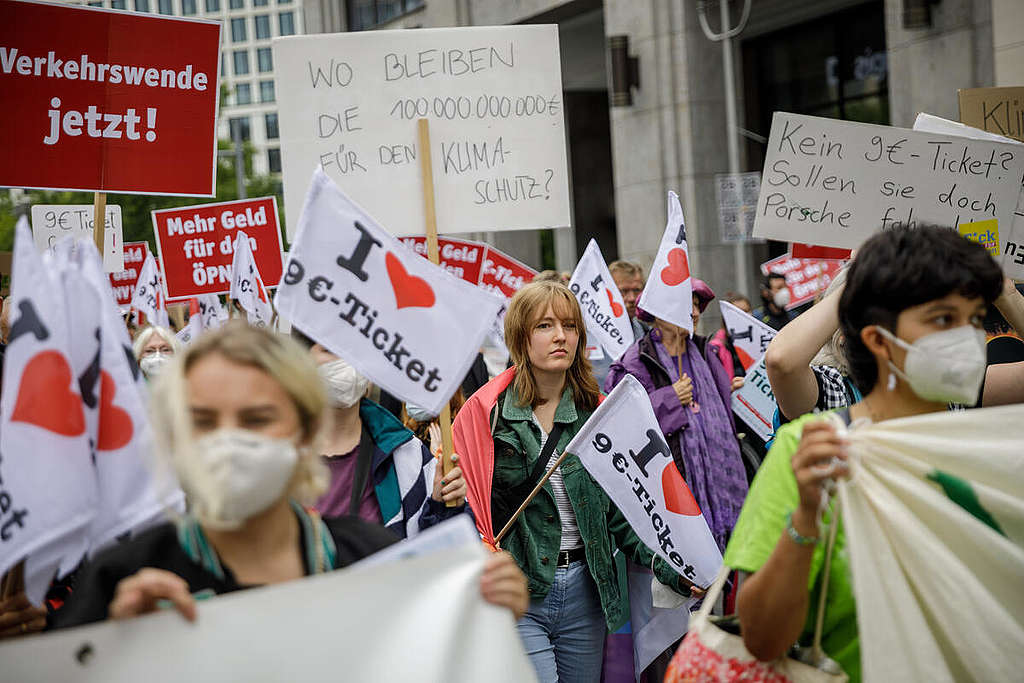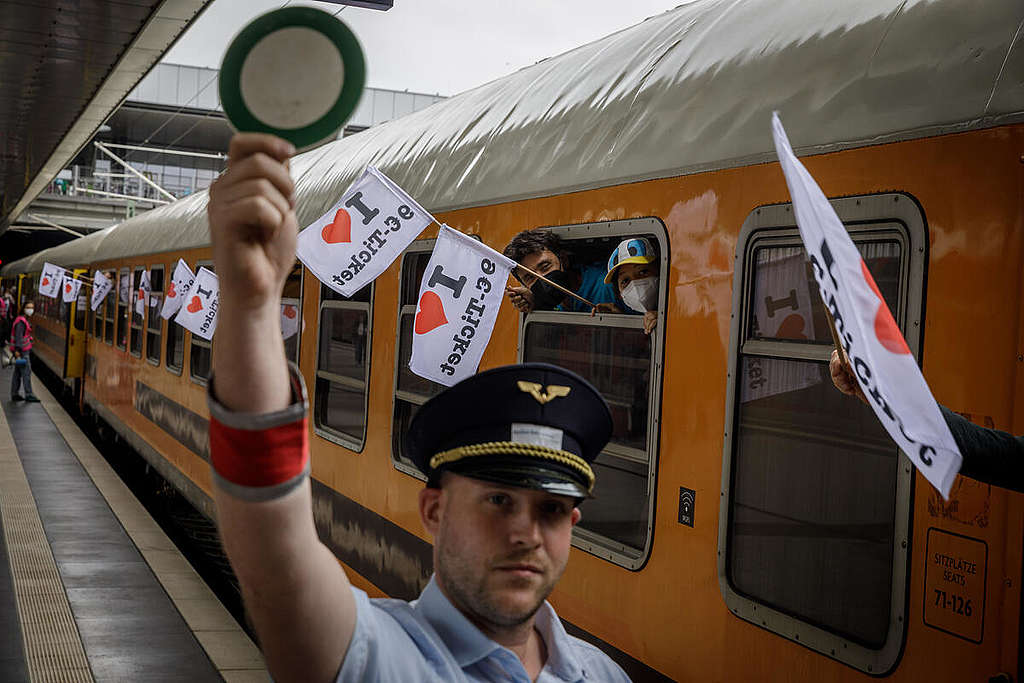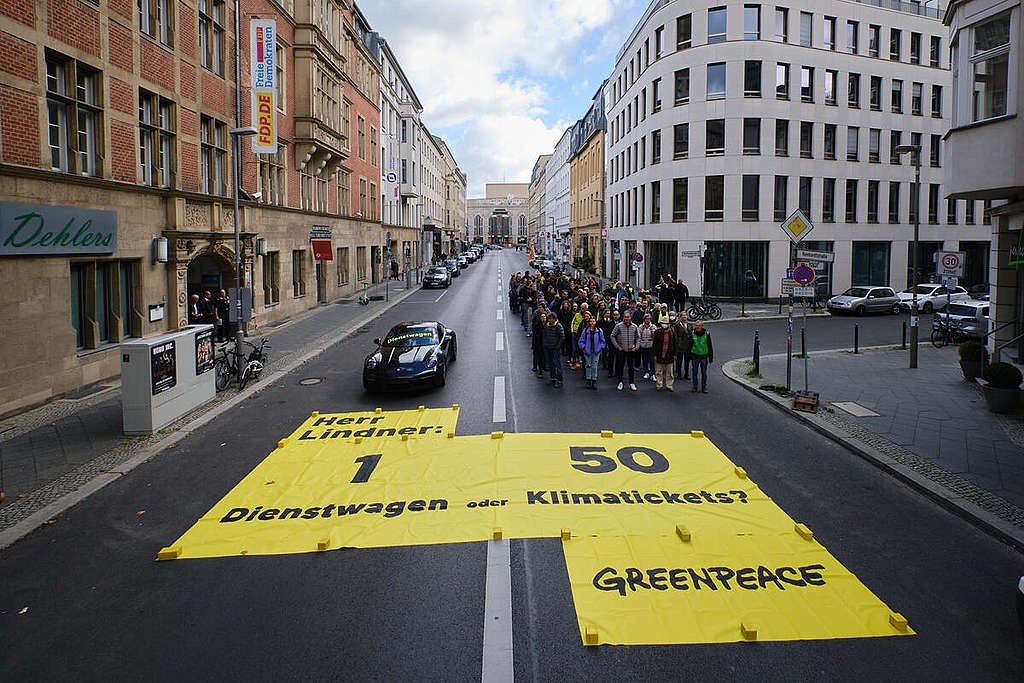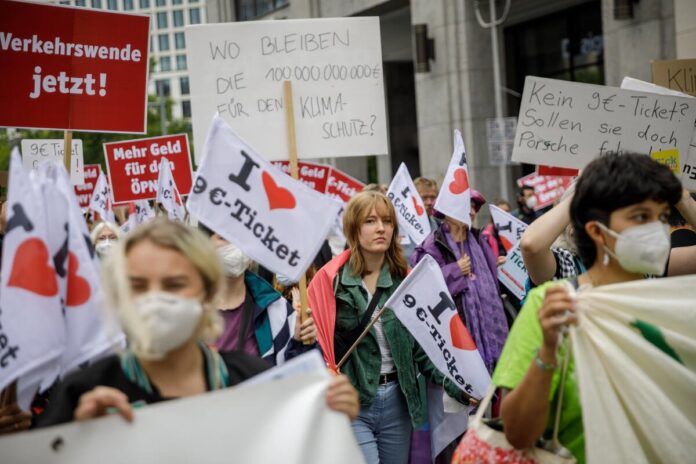‘Climate tickets’ are gaining momentum in Europe. In a bid to cushion people’s energy bills, save energy, and meet climate goals, some European countries have made public transport free or more affordable. These schemes have been exceptionally popular among people, helping households and cutting greenhouse gas emissions. So why aren’t all European governments turning to ‘climate tickets’?

Mobility is part of our everyday lives. We need it to meet our basic needs, participate in society and live decently. But with rising energy and fuel costs, transport is becoming increasingly unaffordable or inaccessible to people, many of whom have already experienced exclusion from the mobility system for years.
Transport constitutes the second-largest expense for European households, after housing, so it has a big impact on their overall financial situation. Low-income households, students, elderly people, people with disabilities, and women and children living in suburbs or rural areas are especially vulnerable. They are often unable to afford or lack access to transport options, or even suffer from “transport poverty”.
On top of that, our current oil-guzzling transport system is causing 30% of the EU’s greenhouse gas emissions, and is fuelling the climate crisis that hits vulnerable groups the hardest.
‘Climate tickets’ save energy, money, greenhouse gas emissions – and people love them
In response to these challenges, several EU countries such as Germany, Spain, Austria, Luxembourg and Malta, and over 50 European towns have introduced ‘climate tickets’ that make rail and public transport free or more affordable – with amazing effects: these tickets have eased the financial burden on consumers amid high inflation and sharply rising energy costs. They led to a decrease in car usage, and fewer traffic jams, and reduced greenhouse gas emissions.
Schemes such as public transport for 9 euro a month in Germany and Spain’s free and discounted train travel have empowered socially disadvantaged groups like senior citizens, low-income families, and refugees to meet their mobility needs. Austria’s ‘climate ticket’ is a big success with commuters, and allows everyone to travel across the country for no more than 3 Euros per day, or one Euro within their region.
These schemes have sparked waves of excitement among people in a time of crisis, and count as some of the most popular policy interventions. In Spain, people consider the measure on free and discounted trains and public transport the most valuable governmental measure during the energy crisis. And according to surveys, in Germany, the majority want a permanent successor scheme.
Over half a million people have signed a Greenpeace Germany petition, calling on the government to introduce a permanent and nationwide ‘climate ticket’. Initiatives like the “9 Euro Fund” are pushing for the “9 Euro ticket” to be renewed.

Let’s get ‘climate tickets’ on track
These public transport schemes show how the state can use the transport sector to help ordinary people in times of crisis if the political will is there. But despite the clear success of these schemes, less than a handful of the 27 European member states offer ‘climate tickets’ or similar schemes, some of which are only temporary.
Pressure from the forces of the conservative car-friendly lobby which are doing everything in their power to keep our transport system locked into oil dependency, arguing that affordable public transport is too expensive to pay for, means that some schemes are at risk of being discontinued.
But let’s face it: Instead of handing out €112 billion in subsidies to the polluting fossil fuel industry every year, or bringing in a windfall tax on the immoral excess profits that fossil fuel companies are currently making at the expense of ordinary people, European governments could easily fund affordable climate tickets for all people living in Europe, integrate ticket booking systems, and invest in the expansion of green transport infrastructure across the bloc to enable cross-border rail travel.

The time is right for political measures to tackle the climate, energy and economic crises that draw on our joint European values of equality, freedom of movement, peace and sustainability. What better way than ramping up rail and public transport infrastructure, and introducing ‘climate tickets’ everywhere in Europe that allow people to save costs, meet their daily mobility needs, and meet friends or go to work in a sustainable way?
Governments have to ensure that ‘climate tickets’ are affordable, easy to purchase and use, by integrating different public transport providers, and ensuring fair access to everyone. The European Commission must take a key role in pushing for these climate tickets to be implemented across the EU, as part of a larger effort to reduce our use of oil in the context of the energy crisis.
Herwig Schuster is a transport expert for the European Mobility For All campaign with Greenpeace Central and Eastern Europe office, based in Austria.



